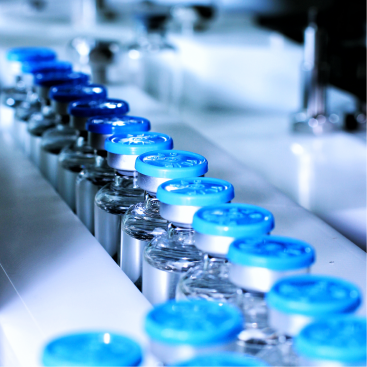Catalog
Learning Objectives:
Why is lymphatic delivery of drugs important?
What are the driving factors for lymphatic delivery of drugs?
What are the different approaches that enable lymphatic delivery?
About this item
The webinar will cover the main disease states and situations for which drug delivery to the lymphatic system is important. The main challenges and barriers to the efficient delivery of drugs to lymph fluid and lymph nodes will be presented. Various mechanisms, approaches and techniques will be discussed for delivery of drugs to and through the lymphatic system, including formulations (lipid-based drug delivery systems, nano/micro-scale particulates) and chemical modifications (pro-drugs, co-drugs) approaches. Successful and unsuccessful cases of delivery of drugs to the lymphatic system will be presented and discussed. Unanswered questions and remaining challenges in drug delivery and targeting to the lymphatic system will be presented, and the topic will be then open for discussion with the audience.
Learning Objectives:
- Why is lymphatic delivery of drugs important?
- What are the driving factors for lymphatic delivery of drugs?
- What are the different approaches that enable lymphatic delivery?
Speaker Information
Pavel Gershkovich, Ph.D.
Dr Pavel Gershkovich is an Associate Professor of Biopharmaceutics in the School of Pharmacy, University of Nottingham. He completed BScPharm, MSc in Clinical Pharmacy and PhD in Pharmaceutical Sciences in The Hebrew University of Jerusalem, Israel. His graduate research focused on the mechanisms of intestinal lymphatic transport of lipophilic drugs. His postdoctoral research was in the Division of Pharmaceutics and Biopharmaceutics, Faculty of Pharmaceutical Sciences, University of British Columbia, Vancouver, Canada from 2007 to 2012. Dr Gershkovich was appointed to a position of Assistant Professor of Pharmacokinetics in the School of Pharmacy, University of Nottingham in 2012, and promoted to Associate Professor of Biopharmaceutics in 2019.
His primary research expertise is Biopharmaceutics, Pharmacokinetics and Drug Delivery. Specifically, his research interests include lymphatic transport and targeting of drugs, biorelevant assessment of taste-masked oral dosage forms, targeted drug delivery and disposition, oral drug delivery, effects of food and its composition on pharmacokinetics and pharmacodynamics, and effects of disease states on pharmacokinetics and pharmacodynamics of drugs. As an independent investigator in the University of Nottingham, since 2012 he has established a dynamic and productive research group that currently consists of 11 PhD students. Ten PhD students graduated successfully so far (100% success rate) under his supervision as a primary supervisor. Up to February 2024, he has published 90 articles in top peer-reviewed literature in the fields of pharmaceutical sciences and medicine. Up to February 2024, these publications have been cited above 3000 times with current h-index of 32 and i10-index of 68.
